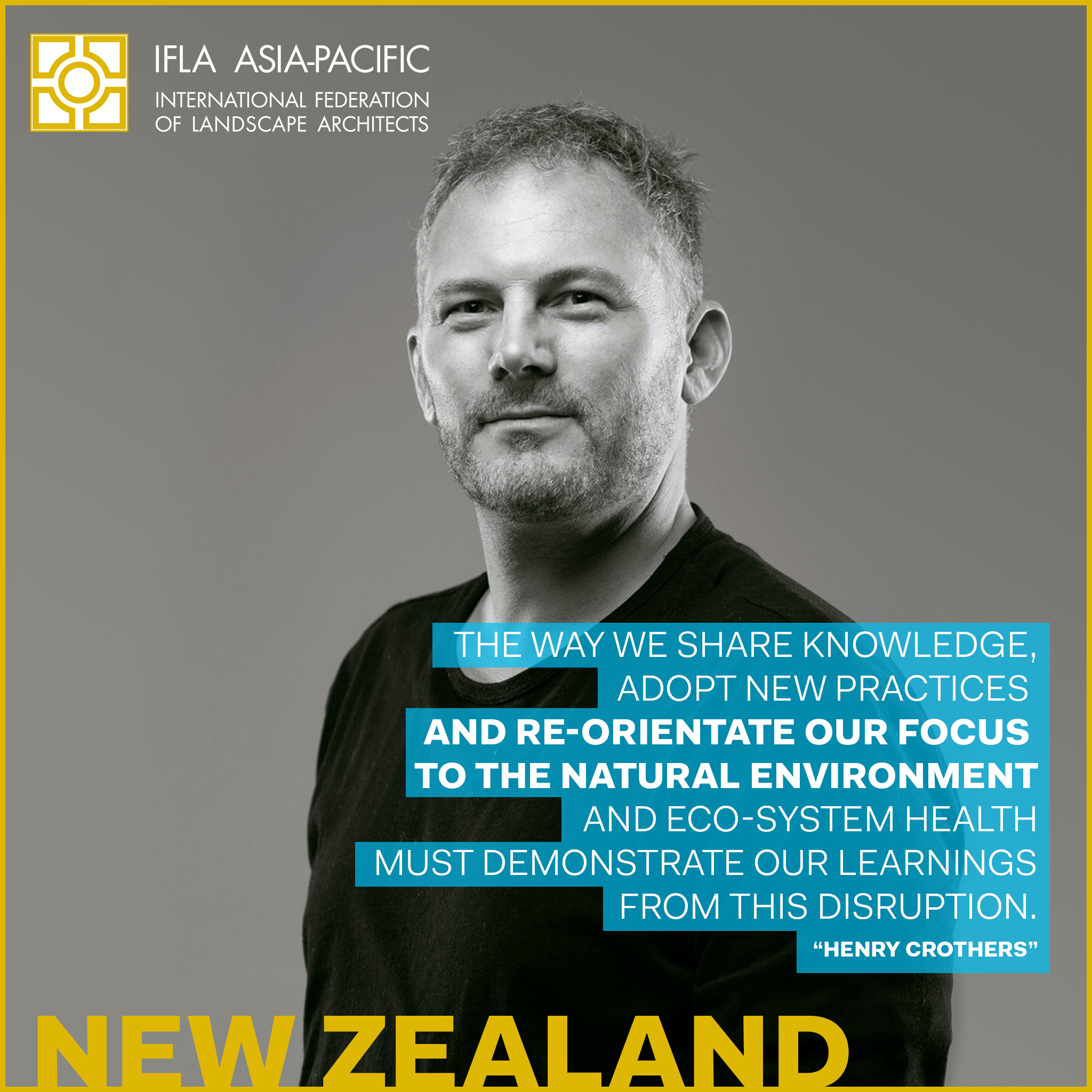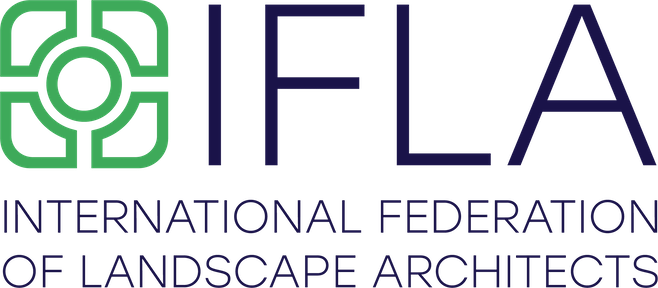LAWB's A Conversation With: NZILA's Henry Crothers
New Zealand | Henry Crothers
New Zealand Institute of Landscape Architects

“Now it is our time”
“There is a risk in the rush to restart the economy that climate and environmental concerns are forgotten in a race to restore the status quo. I’d like to think that Landscape Architects will play a more influential role in defining a future that has increased emphasis on resilience, community, local economies, public realm and the environment. As James Corner famously said ‘landscape (and the public realm) must now replace architecture as the primary building block of the city’. Now is our time as Landscape Architects to stand up and provide the design leadership, design thinking and integrated design solutions of landscape practice that address the complex environmental, social and economic challenges of a different future.”
How would you describe the COVID-19 pandemic situation in your country?
Aotearoa New Zealand has managed the outbreak well by acting quickly and decisively using a levels approach to establish different approaches to lockdown and social isolation. The Government has been acknowledged internationally for its success in controlling the number of cases. However, there are ongoing concerns about the economic and social impact of the lockdown and of a second wave of the virus emerging
What are some of the hardest-hitting impacts of COVID-19 for the community of design professionals in your country?
For the design profession, there has been a noticeable drop in project opportunities with both public and private sector projects being paused or withdrawn due to economic uncertainty or a re-prioritisation of spending. The Government has identified a range of stimulus and ‘shovel ready’ projects but many of these are mainly focussed on infrastructural projects rather than those with potentially longer-lasting environmental, community and social impacts. The extent to which these projects benefit Landscape Architects is not clear. Changes to the way we work, manage life and work, and communicate and do projects provide challenges as well as opportunities. The experience of ‘lockdown’ has placed increased importance and lessons in terms of maintaining personal and community wellness and mindfulness. There is the opportunity for increased social and economic resilience via a re-prioritisation of how we live.
Who is the most vulnerable population in your country affected by this aftermath? And what can we as landscape architects do to provide help?
The most vulnerable are the elderly who are obviously at the highest risk. Also, some of our lower socio-economic communities who are less mobile, have less access to good amenity and open space, and live in more cramped conditions and potentially have less access to technology and tools of communication.
In what ways would you improve your city to enhance the way of life for people in your country post-pandemic?
Auckland is a fairly low density, sprawling new world city so whilst this provides some advantages in managing a pandemic situation the experiences of the lockdown can be used to leverage positive changes to the way we live and move around in our city.
- Developing more walkable and self-sufficient neighbourhoods the low traffic associated with lockdown has changed people’s behaviour with many walking and cycling largely within their own neighbourhoods. These behavioural changes can be supported by improved networks for walking and cycling and increased emphasis on supporting the local economy. The evidence during lockdown was that existing parks and open spaces and walkways were being used more than ever and as our key ways of maintaining social interaction and a sense of community whilst implementing social distancing. The importance of access to good open space is likely to become even more important to social and environmental resilience in the future.
- Improving active modes (walking and biking) and micro-mobility the low traffic associated with lockdown has changed people’s behaviour with many walking and cycling largely within their own neighbourhoods. These behavioural changes can be supported by improved networks for walking and cycling and increased emphasis on supporting the local economy. Lockdown highlighted just how much space in our city streets is allocated to the car. Auckland has in recent years started to develop an adequate cycle network that ongoing investment will see make active modes a viable option for many in the future.
- Reclaiming space for people in the public realm Our Council has been proactive in seizing the opportunity during lockdown to undertake a number of tactical urbanism interventions in key city spaces such as Queen Street (Auckland’s main shopping street). These may well have provided a lasting legacy in terms of the city’s transformation.
Our abilities as Landscape Architects to think, design and act has never been more important. The way we share knowledge, adopt new practices and re-orientate our focus to the natural environment and ecosystem health must demonstrate our learnings from this disruption. The issues and responses to COVID and climate change are interwoven and the actions we take now, individually and collectively, will be our profession’s legacy. We can use our abilities to help people, organisations and society navigate towards a more resilient, equitable and accessible future. Now is our time.
*Please join us in shaping our post-pandemic world and landscape architecture profession, by sharing your thoughts and idea aspirations for the new world you envision. We will be collecting everyone's ideas and sharing them with our Landscape Without Borders Community. It is time, we look forward to hearing from you. https://forms.gle/PEP8nFia17WBAkvK7
Produced by: IFLA APR Landscape without Border, Kotchakorn Voraakhom, TALA, and IFLA Secretary team
Text editor: Assoc. Prof. Mike Barthelmeh NZILA
Graphic: IFLA APR Landscape without Border, Watcharapon Nimwatanagul, TALA
Communication: Bosco, So Ho Lung, HKILA

